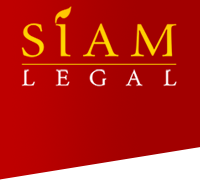New Thai Visas and Sweeping Changes to Immigration Rules Announced

In an effort to boost its flagging economy, Thailand’s government announced sweeping updates to existing visa rules and the introduction of a new visa to attract more visitors, professionals, and investors to the Kingdom. The announcement was made on May 28, 2024, and follows Thailand’s other recent bids to galvanize tourism by dialing back immigration restrictions, marking one of the biggest changes to the immigration rules in the post-COVID crisis years.
The most significant updates involve a new visa type designed for digital nomads, new additions to Thailand’s visa-on-arrival and Thai visa exemption programs, and the easing of some restrictions on student and retiree visas.
The all-new Destination Thailand Visa for remote workers in Thailand
Thailand has always been a haven for digital nomads, those who work exclusively online from anywhere in the world, and now Thailand is making it much easier to make the Kingdom a “workcation” destination. The recent announcement introduced the “Destination Thailand Visa” (DTV), which will be valid for 5 years and allow holders to stay in Thailand for a total of 180 days each year. These days need not be consecutive, and the 180-day limit means that holders will not have their foreign income taxed by Thailand.
Further details on the new visa are sparse, as it was recently announced, but more information should be announced by June 1. At the time of this writing, what is known about the visa includes:
- The visa is valid for 5 years, but holders can only stay in Thailand for 180 days per year.
- Applicants must be at least 20 years old, and prove they have at least 500,000 THB in the bank to support their stay.
- Holders cannot apply for a work permit but can earn untaxed foreign income while in Thailand.
- The visa fee is planned to be 10,000 THB.
- Provisions will be made for family members to accompany the visa holder, though no details have been provided.
Check back on this blog for future updates on this visa, as more eligibility requirements and details on the application process are forthcoming.
New nations added to Thailand’s visa-on-arrival and visa exemption programs
To encourage a steady flow of short-term tourists, Thailand maintains agreements with partner nations that allow their citizens to enter the Kingdom with no visa, or a visa that can be acquired upon landing with no need for applying at an embassy or consulate. While these agreements have traditionally been reserved for wealthy nations and regional partners, this recent immigration announcement adds 36 countries to the visa exemption list and 12 countries to the visa-on-arrival list.
Visa-on-arrival is now open to 31 countries, up from the previous list of only 19. The number of nationalities eligible for visa exemption now sits at 93, up from 57. New additions to the exemption list include:
- Albania
- Cambodia
- Jamaica
- Laos
- Mexico
- Morocco
- Panama
- Romania
- Sri Lanka
- Uzbekistan
China, India, and Kazakhstan have been enjoying temporary visa-free agreements with Thailand, but these have now been made permanent, so they have also been added to this list.
Along with these updated lists, the government also announced new rules that will be a boon for visitors entering visa-free. Entering on a visa-exemption scheme currently allows a visitor to stay for 30 days, but once the new rule goes into effect, this period will increase to 60 days. This increased duration is hoped to extend tourists’ vacations and increase their spending while also alleviating the overworked immigration authorities.
Easing restrictions on education and retirement visa holders
Other announced updates to the immigration rules will provide tangible benefits for those holding education and retirement visas. These updates will go into effect on June 1, 2024.
Thai Student Visa Holders
Foreign students of higher education generally must leave as soon as they graduate from their academic institution. With this update, however, these students will now be allowed to stay in Thailand for up to one year. The government hopes that during this time, students can search for employment in Thailand and fill positions in fields that are experiencing a shortage of qualified workers.
Thai Retirement Visa Holders
The popular Thailand retirement visa has also been updated and is now easier to acquire than ever. Currently, to be eligible for this visa, applicants must prove that they have around 3 million THB in health insurance coverage to ensure they will not be a burden on Thailand’s taxpayer-funded public health system.
With the new changes in place, the updated rule requires applicants to possess health insurance coverage of only 440,000 THB (400,000 for inpatient, and 40,000 for outpatient coverage). This will make the retirement visa available to many more applicants, as affording the previous insurance requirement meeting as well as the visa’s strict income and asset requirements could be difficult. There have been no announced changes to the financial requirements.
If you need assistance or guidance on any Thai visa application process, contact Siam Legal. We’ve got over two decades of experience helping clients of all nationalities acquire their desired visas in Thailand swiftly and smoothly, and we can do the same for you. Let our expert Thai visa consultant team handle your application, and enjoy peace of mind knowing you’re getting your visa with minimal risk and maximum speed.
Category: Thailand Visa










